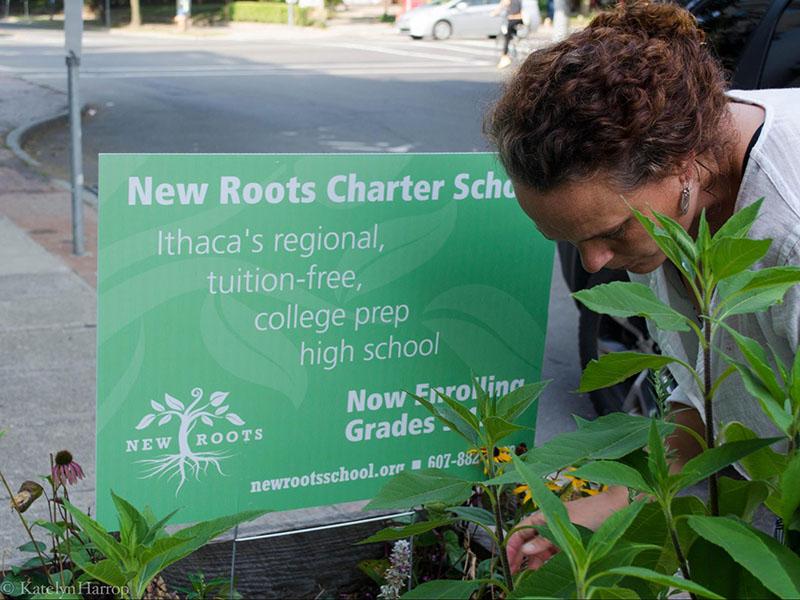New Root’s newest program aims to prepare high school students for careers in the growing fields of agriculture, culinary arts, and food sciences through a mixture of specially selected elective courses such as Sustainable Entrepreneurship and Ecological Design. A collective effort among New Roots’ faculty and staff, the program is designed to offer hands-on experience through internship pairings with local industry members.
“We’ve been building this program for like seven years now, and I’m ready to launch it,” said Community Learning and Outreach Coordinator Rebecca Cutter. “It’s part of [our] agenda for education of sustainability, which is an important aspect of what New Roots is all about.”
In order to achieve the program’s certification, students will need to complete at least 120 hours of internships and will be required to take a mixture of courses exploring culinary arts, food, and agriculture. Students will also be required to develop a portfolio throughout the program, demonstrating their grasp of the content included in the certification, and to serve as a capstone example of their completed work upon graduation.
“The biggest aspect of this program is teaching kids to look at our food system, as just that — a system. A large series of interconnecting systems,” said New Roots sustainable economics teacher and certificate program organizer Michael Burns. “So for the students, the biggest impact is developing a systems approach to something that cuts across all disciplines.”
In addition to earning students honors distinction upon graduation, the certification program is also intended to act as a launching pad for students to further pursue higher education opportunities in the agriculture, culinary arts and sustainability fields. Some of the program courses, including Burns’ Foodshed Studies class will be offered for college credit through Tompkins Cortland Community College.
The program takes students out of the classroom through internships and hands-on learning opportunities at local farms and food establishments in order to provide students with real-world training.
New Roots also received financial support from the community, including a number of grants from Sustainable Tompkins — a local organization focused on promoting sustainable community action.
“The whole idea behind our mini-grant program is to provide seed money for great citizen-based projects that lead toward a more informed, civically engaged, resilient community,” said Sustainable Tompkins President, Gay Nicholson. “These grants to New Roots are a subset of a long list over the years of supporting community gardens, and especially youth engagement in learning about food and nutrition and how to create a local food system that is sustainable and resilient.”
While the program won’t begin until the school’s semester commences next week, Cutter said students have already begun to reach out to New Roots to express their interest.
“There’s a lot of interest on the part of students,” Cutter said. “We launched the program via press release, and we put it on our website and our Facebook page and we’ve already received Facebook messages from students saying ‘I want to get involved in the program!’”













